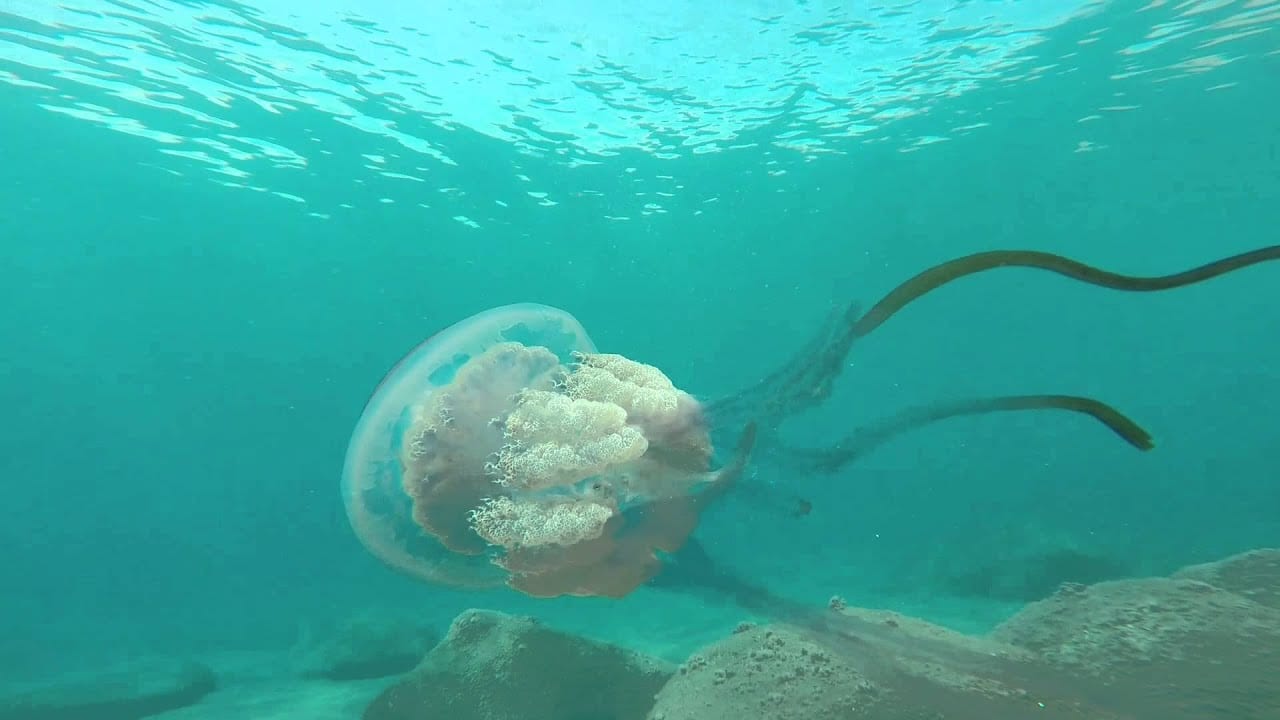
A GIANT jellyfish has been discovered in off the coast of Ceuta by the Centre for Studies and Conservation of Marine Animals (CECAM).
The find is described as ‘extremely rare’ and has been put down to the effects of climate change.
The species is known as a ‘Rhizostoma Luteum’ and can weight up to 40kg.
More and more, it is also being found along the Costa del Sol, with one being spotted on Los Granados de Manilva beach this summer.
Scientists began noticing the surge in giant jellyfish in the summer of 2012, when 50 were observed off Spain’s Mediterranean coast.
While this weekend’s find was near Sarchal de Ceuta beach, the specimen has also been found off the coasts off Murcia, Almeria and Granada in recent years.
Specialists have stressed that despite its size, its bite only causes mild irritation.
Unlike other sea life, jellyfish can thrive in warmer temperatures.
As summer extends longer each year as a result of global warming, it brings with it longer jellyfish seasons.
“Jellyfish are showing up earlier and sticking around longer,” Lucas Brotz, a jellyfish scientist at the Institute for Oceans and Fisheries at the University of British Columbia, told Fast Company.
They can also breed in water that’s polluted and largely devoid of oxygen.
Click here to read more Spain News from The Olive Press.








